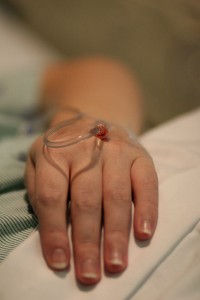Dr. Joseph Barber
I recently had some minor surgery, and now that I am home recovering I have been thinking about some of the various similarities and differences between the job hunting process and surgery. Note – I am still on some pretty powerful painkillers!
1) You can spend a lot of time on WebMD trying to self-diagnose your ills, but you often don’t have an objective perspective (I always skip over “brain tumor” and look for something much less serious when seeing which diseases match my symptoms – something like “cat-scratch fever” always seems much less scary). However, it is always better to go to your doctor for a proper diagnosis. Similarly, get a fresh perspective and some expert feedback on your application materials by coming to Career Services for an appointment. Another pair of eyes can help you see your materials from the employer’s perspective.
2) Job hunting can take a long time, and a lot of effort, but on the plus side, it is not as painful as having your insides poked at by someone with a sharp knife.
3) I get just as nervous before job interviews as I did before my surgery, but at least you are allowed to eat and drink before the job interview (and this is a good idea, so long as you avoid that jitters-causing espresso!).
4) It is important to dress appropriately for surgery and interviews. Business formal (e.g., a suit) is always your best option for interviews. And while no-one looks good in hospital gowns, you might get to keep your socks on, so choose a pair that has no holes.
5) I was asked at least 18 times for my name and what procedure I was having done during the hospital admission process (so I guess writing “do not remove” in permanent marker all over my limbs wasn’t necessary). People who might interview you, especially when you meet with groups, may have little or no idea who you are, as they didn’t have time to review your materials beforehand – don’t assume they know your skills, or what you wrote in your CV/resume or cover letter, and don’t be afraid to make reference to achievements and illustrations of your skills mentioned in your materials.
6) Always look for networking connections when job hunting. I was connected with my anesthesiologist as he also monitored my wife during her C-section. A connection like this when hunting for jobs can make all the difference.
7) It is best not to black out completely during your interview. The opposite is true during surgery.
8) Don’t leave the hospital without your discharge instructions (or your trousers). Don’t leave your interview without knowing their timeline for getting back in contact with you (so that you know when to follow up with them if they haven’t called).
9) Give yourself some time to reflect upon your interview when it is all over and done with. Think about whether you can do anything better for the next one. On the other hand, try not to think about people poking at your insides with sharp cutting tools, because the remnants of the general anesthesia will make you nauseous enough as it is.
10) Painkillers are important post-surgery. Talking with your peers, your supervisor/PI, your friends, or with advisors from Career Services is the best medicine to help you with that post-interview period, especially if it didn’t go as well as you had hoped.


